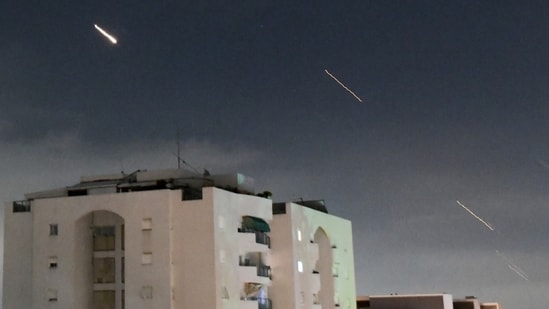Israel spokesperson said we approved operational plans for both offensive and defensive action...
Israel’s War Cabinet on Sunday met without deciding on the next steps, an official said,
Iran fired over 300 missiles and drones at the weekend, the first time it has struck Israel from its soil.
Israeli leaders credited an international military coalition with helping thwart a direct Iranian attack involving hundreds of drones and missiles, calling the coordinated response a starting point for a “strategic alliance” of regional opposition to Tehran.
On Monday, the US Central Command or CENTCOM on Monday, April 15, claimed that its forces, supported by US European Command destroyers, on April 13 and April 14, destroyed over 80 one-way attack uncrewed aerial vehicles (OWA UAV) and at least six ballistic missiles intended to strike Israel from Iran and Yemen.
The Israeli military also reported that 99 per cent of the barrage was successfully intercepted, and no Israeli casualties were reported, after Iran's prior indications of the attack. Iran stated that it had achieved its objective, aiming to temporarily halt the progression towards a larger conflict. Allies of Israel in the US and Europe urged restraint, advocating for the avoidance of further escalation in statements made on Sunday.
Israel's chief spokesperson Rear Admiral Daniel Hagari said the country remained on high alert and is assessing the situation. “Over the last few hours we approved operational plans for both offensive and defensive action,” Daniel Hagari said in a televised statement.
The Iranian attack on Saturday, less than two weeks after a suspected Israeli strike in Syria that killed two Iranian generals in an Iranian consular building, marked the first time Iran has launched a direct military assault on Israel, despite decades of enmity dating back to the country’s 1979 Islamic Revolution.




The Brief. Sign up to receive the top stories you need to know right now.